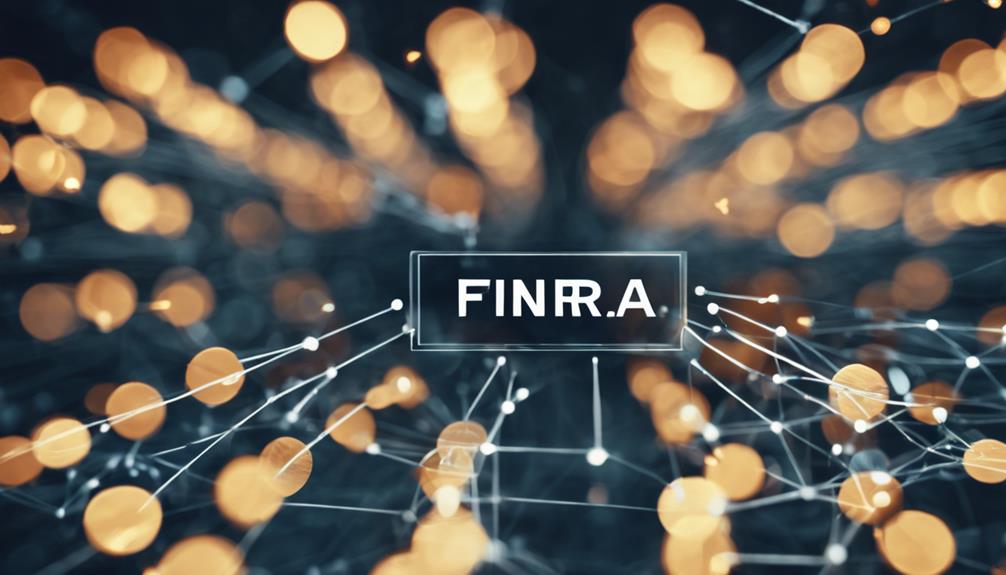Maximizing retirement wealth through digital asset planning requires careful consideration of strategic valuation, secure management, and expert collaboration. It is important to properly identify and evaluate assets such as cryptocurrencies and NFTs, taking into account marketplace trends and legal considerations. Safely managing access is essential for seamless asset transfer and exploring various monetization strategies like leasing or selling assets. Working closely with financial and legal professionals can help optimize wealth and develop a comprehensive digital asset plan. Integrating digital assets into retirement income can promote tax-efficient growth and financial stability. By following these steps, you can enhance long-term financial security and growth opportunities. For more information on maximizing retirement wealth through digital asset planning, visit the link provided.
Key Takeaways
- Accurate valuation of digital assets is crucial for retirement wealth optimization.
- Securely store access information for smooth asset management and transfer.
- Collaborate with financial and legal experts to integrate digital assets effectively.
- Explore diverse monetization avenues to boost retirement savings.
- Diversify retirement income with tax-efficient digital asset management strategies.
Identifying and Valuing Digital Assets

In identifying and valuing digital assets, our focus lies on understanding their worth and potential impact on retirement wealth. Digital assets encompass a wide range of items, including cryptocurrencies, NFTs, domain names, and online gaming avatars. These assets hold an estimated average value of $35,000, as reported by McAfee. Identifying these assets involves a meticulous fact-finding process to make sure that none are overlooked.
Valuing digital assets accurately is vital for maximizing retirement wealth, as their market value can fluctuate substantially. Proper valuation enables individuals to make informed decisions regarding the management and monetization of these assets. By strategically leveraging digital assets through methods such as leasing or sale, individuals can enhance their retirement savings significantly.
Understanding the true value of digital assets is a key step in effective retirement planning, highlighting the importance of proper identification and valuation processes in securing financial stability for the future.
Understanding Marketplace Value and Legal Considerations

Understanding the marketplace value of digital assets is imperative for evaluating their impact on retirement wealth.
Likewise, ensuring legal compliance when transferring these assets is essential for a smooth shift and to avoid potential legal issues.
Asset Valuation Importance
Proper valuation of digital assets in retirement planning necessitates a deep understanding of marketplace dynamics and legal implications. Understanding the marketplace value of digital assets is essential for accurately evaluating retirement wealth. Legal considerations, such as transfer rights and compliance with estate planning documents, are essential in this process.
Asset valuation extends beyond traditional investments to include cryptocurrencies, NFTs, and other digital holdings, requiring a thorough approach. Identifying service providers that facilitate the transferability of these assets is crucial for optimizing retirement wealth. By factoring in these elements, individuals can guarantee their assets are accurately valued and legally compliant, laying a solid foundation for successful retirement planning.
It's important to take into account these factors to maximize the potential of digital assets in securing future financial stability.
Legal Compliance Essentials
Valuing digital assets accurately in retirement planning requires a keen awareness of their marketplace dynamics and legal implications.
When considering legal compliance essentials for estate planning involving digital assets, it's important to guarantee proper transfer rights and adherence to trust and estate planning documents.
Identifying service providers that support desired transferability of digital assets is a key consideration in legal compliance for estate and trust arrangements.
Before creating digital assets, thorough review of legal details is necessary to align with regulatory requirements and transferability provisions.
Compliance with trust and estate planning documents is vital to protect the rights and transferability of digital assets in accordance with legal frameworks.
Managing Access Information and Locations

When it comes to managing access information and locations for digital assets, it's essential to securely store login details and encryption keys, document the whereabouts of digital assets, and make sure trusted individuals have the necessary access.
By implementing secure password management, document storage solutions, and maintaining trusted contact information, we can safeguard our valuable digital assets effectively.
Regularly updating and reviewing access information is key to preventing unauthorized access and maintaining the confidentiality and integrity of our digital wealth.
Secure Password Management
Ensuring secure password management is essential for safeguarding access to our digital assets and accounts. When it comes to managing access information and locations, here are some key strategies worth exploring:
- Utilize password management apps for secure storage.
- Regularly update and change passwords for enhanced security.
- Understand the importance of managing access information to prevent unauthorized entry.
- Proper password management reduces the risk of financial loss and data breaches.
Document Storage Solutions
Utilizing secure online storage solutions like FidSafe is pivotal in safeguarding essential documents and financial records. Properly managing access information and locations is vital to prevent loss or unauthorized access to valuable documents. Backing up cloud-stored data to local devices regularly guarantees accessibility for family members and fiduciaries. One-click download features on certain platforms facilitate easy access to stored digital assets. Collaboration with professionals for holistic planning can further secure and organize access to important digital assets. Below is a table to demonstrate the importance of document storage solutions and secure online storage in managing access information effectively:
| Importance of Document Storage Solutions | Benefits of Secure Online Storage |
|---|---|
| Prevent loss of valuable documents | Ensures data security |
| Facilitates easy access for family members | Enables organized document management |
| Protects against unauthorized access | Facilitates seamless information retrieval |
Trusted Contact Information
We prioritize guaranteeing that trusted contacts have access to our digital asset information and locations in case of emergencies or incapacity. When managing access information for digital assets, consider the following:
- Provide detailed instructions on accessing digital assets, including passwords and storage locations.
- Maintain an updated list of digital assets for easy management by trusted contacts.
- Use secure methods like encrypted files to share access information securely.
- Regularly review and update trusted contact information to ensure effective management of digital assets when needed.
Exploring Monetization Opportunities

Exploring various avenues for monetization in digital asset planning can greatly enhance retirement wealth.
One strategy is leasing digital properties, such as websites or online storefronts, to generate passive income. Selling digital assets like domain names, NFTs, and digital photos can also be lucrative, offering significant profits upon sale.
Leveraging digital platforms for online businesses presents opportunities to create multiple revenue streams during retirement. Partnering with online marketplaces to sell digital products or services is another effective way to boost retirement wealth.
Additionally, engaging in affiliate marketing or creating sponsored content with digital assets can lead to additional income streams.
Collaborating With Financial and Legal Professionals

Collaborating with financial and legal professionals enhances expertise in digital asset planning strategies. This collaboration can be instrumental in maximizing retirement wealth through effective management of digital assets.
When working with these experts, consider the following key points:
- Expert Assessment: A financial adviser can help evaluate the value of digital assets, guiding their integration into thorough retirement plans.
- Legal Compliance: Legal professionals make certain that digital assets are appropriately addressed in estate plans, avoiding potential complications in the future.
- Maximization of Wealth: By leveraging the advantages of digital asset planning, professionals can help maximize retirement wealth over time.
- Holistic Approach: Collaboration between financial and legal experts leads to a secure approach to managing digital assets within estate plans, providing a comprehensive strategy for retirement financial security.
Engaging with financial and legal professionals empowers individuals to navigate the complexities of digital asset planning, ultimately contributing to a more secure and prosperous retirement.
Creating a Comprehensive Digital Asset Plan

To effectively create a thorough digital asset plan, one must first identify all digital assets, including cryptocurrencies, NFTs, and online accounts. Valuing these assets accurately is important to understanding their impact on your overall wealth and retirement plan.
Considering market trends and growth opportunities can help maximize the value of your digital assets over time. It's essential to securely store access information and login details to guarantee smooth management and transfer of these assets when needed.
Additionally, staying informed about legal considerations and regulatory requirements for transferring digital assets to heirs or beneficiaries is key to a detailed plan for retirement. By taking these steps and having a clear strategy in place for managing different types of digital assets, one can better position themselves to maximize their retirement wealth through digital asset planning.
Maximizing Retirement Income Through Digital Assets

After identifying and valuing digital assets in your thorough plan, maximizing retirement income through digital assets becomes a strategic approach to enhancing wealth accumulation and securing financial stability. Utilizing digital assets in retirement planning offers unique advantages that can greatly impact your financial future: By understanding digital asset retirement accounts, you can leverage tax advantages and long-term growth potential to optimize your retirement savings. These accounts provide a structured and secure way to integrate digital currencies, blockchain-based investments, and other virtual assets into your overall retirement strategy. This forward-thinking approach allows you to diversify your portfolio while benefiting from the evolving financial landscape of digital innovations.
- Tax-Advantaged Growth: Digital assets provide opportunities for tax-efficient growth, allowing for enhanced retirement income streams.
- Compounding Effect: Proper management of digital assets maximizes the compounding effect, leading to accelerated wealth accumulation over time.
- Diversification Benefits: Diversifying retirement savings with digital assets can offer substantial gains and increased financial security.
- Market Volatility Hedge: Integrating digital assets into retirement planning serves as a hedge against traditional market volatility, ensuring a more stable income during retirement.
Frequently Asked Questions
Is a Bank Account Considered a Digital Asset?
A bank account isn't considered a digital asset. Unlike digital assets such as cryptocurrencies or NFTs, bank accounts are traditional and tangible financial assets.
Digital assets, stored electronically, differ greatly from bank accounts. Understanding this distinction is important for effective estate planning and wealth management.
Digital asset planning involves strategies to maximize retirement wealth utilizing non-physical assets like cryptocurrencies and digital media. Proper planning can enhance financial security and guarantee a well-managed inheritance.
How Do You Plan Digital Assets?
When planning digital assets, we identify all assets and understand ownership and transferability. It is important to regularly back up data and use secure storage solutions.
Legal advice plays a crucial role in updating estate planning documents to include digital assets.
How Do You Include Digital Assets in a Will?
Including digital assets in a will is essential for thorough estate planning. We must explicitly list these assets in our will to make sure they're accounted for.
It's wise to appoint a digital executor who understands technology to manage and distribute these assets accordingly. Providing clear instructions on accessing and transferring digital assets to chosen beneficiaries is key to avoiding complications.
Regularly updating our will to reflect changes in our digital portfolio is vital for staying current.
Do You Want to Include Digital Assets in Your Residual Estate?
We absolutely should include digital assets in our residual estate. Neglecting to do so might lead to complications and financial losses for our heirs. Valuing and managing these assets is essential for their proper transferability.
Conclusion
To sum up, through identifying, valuing, and managing digital assets effectively, maximizing retirement wealth becomes a tangible goal.
Exploring monetization opportunities and collaborating with professionals can further enhance financial plans.
Crafting a holistic digital asset plan is key to securing a prosperous retirement.
By understanding the marketplace value and legal considerations, individuals can optimize their income in retirement through strategic digital asset planning.










